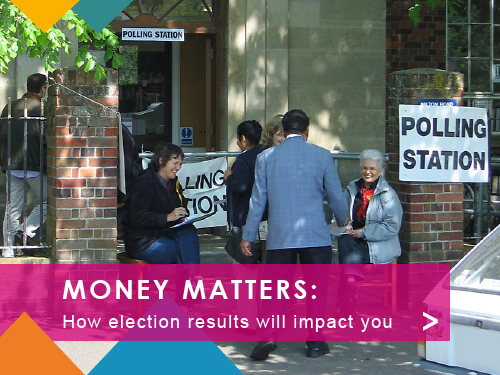Money Matters: How will household finances be impacted by the result of the General Election?

In this week’s Money Matters column, Wrekin’s debt and energy manager Dan Bebbington examines how your household finances could be impacted by the result of the upcoming General Election.
We’re on the cusp of a General Election, and the start of a new government.
Both Labour and the Conservatives have set out a raft of pledges in an effort to win your votes on July 4th, many of which could impact your household finances in one way or another.
They include promises over taxes, benefits, pensions, and the cost of living.
But first let’s take a look at jobs and wages. If Labour wins the election, which is looking very likely, the party says it will tackle poverty and inequality through creating more jobs and reforming the way people are supported into work.
It will raise minimum wage to a ‘genuine living wage’, taking into account the cost of living, and remove the age bands, which will mean a welcome pay rise for younger people. Labour will also ban zero hours contracts, and help all 18-to-21-year-olds to find and access work.
The Conservatives also say they want to create jobs, and would continue to increase the ‘National Living Wage’ each year, up to a predicted £13 per hour by 2029. However the current age bands which mean younger workers are paid less would remain in place.
When it comes to tax, Labour has pledged not to increase rates of income tax or VAT.
Meanwhile the Conservatives would abolish the main rate of National Insurance for self-employed people, and continue cutting employee National Insurance with a plan to eventually get rid of it altogether.
Disappointingly, both main parties have resisted calls to raise the threshold at which people start paying income tax, meaning as wages rise, so will the amount of tax you pay. It also means more part-time workers paying income tax.
Moving on to benefits, Labour has promised to review the Universal Credit system but hasn’t said what this will look like.
The Conservatives have said they’d accelerate the process of moving everyone still claiming ‘legacy benefits’ such as tax credits onto UC.
Some smaller parties like the Liberal Democrats and Greens have said they would abolish the two-child limit for Universal Credit, a measure that would help lift struggling families out of poverty. However neither of the main parties have committed to this.
There’s a lot to unpack from both Labour and the Conservatives when it comes to benefits and wider support for people with disabilities and physical or mental health conditions, which we will delve into in next week’s column.
There are also pledges on pensions, with the Labour promising to maintain the ‘triple lock’ to ensure pensions continue to increase each year at a fair rate.
The Conservatives want to upgrade this to the ‘triple lock plus’, which will raise the tax-free allowance for pensioners to ensure the state pension is not subject to income tax.
Labour’s plans to tackle the cost-of-living crisis include setting up Great British Energy, to help bring down energy bills. The party would also open free breakfast clubs and 3,000 nurseries to help deliver funded childcare hours.
The Conservatives have said they would maintain the energy price cap and reform standing charges. They will also press ahead with the expansion of 30 hours a week of funded childcare to all children over nine months, and reform child benefit to make it fairer for single-income households.
26th June 2024